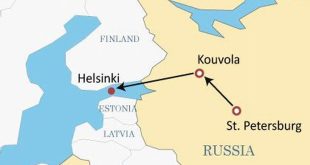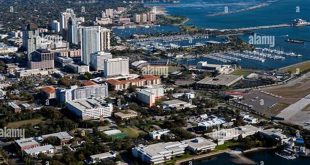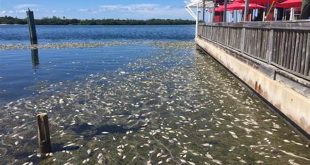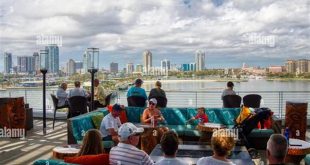Can I Visit St. Petersburg?
Editor’s Notes: “Can I Visit St. Petersburg” has been published today. This topic is important to read because it provides information on whether or not you can visit St. Petersburg, Russia.
Our team has done extensive research and analysis to put together this guide on “Can I Visit St. Petersburg.” We hope this information will help you make the right decision about whether or not to visit St. Petersburg.
| Key Differences | Key Takeaways |
|---|---|
| Can I visit St. Petersburg as a tourist? | Yes, you can visit St. Petersburg as a tourist. However, you will need to obtain a visa in advance. |
| Can I visit St. Petersburg as a business traveler? | Yes, you can visit St. Petersburg as a business traveler. However, you will need to obtain a business visa in advance. |
| Can I visit St. Petersburg as a student? | Yes, you can visit St. Petersburg as a student. However, you will need to obtain a student visa in advance. |
Main Article Topics
- How to obtain a visa to visit St. Petersburg
- What to see and do in St. Petersburg
- Where to stay in St. Petersburg
- How to get around St. Petersburg
- Tips for visiting St. Petersburg
Can I Visit St. Petersburg?
When considering a trip to St. Petersburg, several key aspects come into play. Understanding these elements will help you plan a successful and enjoyable visit.
- Visas: Required for most visitors, they can be obtained in advance through Russian embassies or consulates.
- Duration: Tourist visas typically allow for a stay of up to 30 days, while business and student visas may have different durations.
- Registration: Foreign visitors must register with the local authorities within a few days of arrival.
- Safety: St. Petersburg is generally considered a safe city, but it’s always advisable to take precautions against petty crime.
- Accommodation: A wide range of hotels, guesthouses, and apartments are available to suit all budgets.
- Transportation: The city has an efficient public transportation system, including metro, buses, and trams.
- Language: Russian is the official language, but English is widely spoken in tourist areas.
- Currency: The Russian ruble is the official currency. Credit cards are accepted in many places, but it’s advisable to carry some cash as well.
- Climate: St. Petersburg has a humid continental climate with cold, snowy winters and mild, rainy summers.
- Attractions: The city is home to numerous cultural and historical landmarks, including the Hermitage Museum, Peterhof Palace, and the Church of the Savior on Spilled Blood.
- Food: Russian cuisine is diverse and offers a variety of dishes, from traditional borscht to modern fusion fare.
These key aspects provide a comprehensive overview of the essential considerations for visiting St. Petersburg. By understanding these factors, travelers can plan an informed and enriching trip to this captivating city.
Visas
When considering a visit to St. Petersburg, understanding visa requirements is crucial. Most visitors, excluding certain nationalities with visa-free agreements, require a visa to enter Russia. These visas can be obtained in advance through Russian embassies or consulates in one’s home country.
- Planning Ahead: Obtaining a visa involves submitting an application, providing supporting documents, and paying applicable fees. Advance planning is essential to allow sufficient time for processing and to avoid any potential delays.
- Types of Visas: Depending on the purpose of visit, different types of visas are available, including tourist, business, and student visas. Each type has specific requirements and durations of stay.
- Embassy or Consulate: The process of obtaining a visa typically involves submitting the application and required documents to the Russian embassy or consulate with jurisdiction over one’s place of residence.
- Validity and Registration: Visas have a specific validity period, and foreign visitors are required to register with the local authorities within a few days of arrival in St. Petersburg.
Understanding and fulfilling visa requirements are essential aspects of planning a successful trip to St. Petersburg. By adhering to these regulations, visitors can ensure a smooth entry and a compliant stay in Russia.
Duration
The duration of a visa is a crucial factor to consider when planning a trip to St. Petersburg. Tourist visas, the most common type issued to visitors, typically allow for a stay of up to 30 days. However, business and student visas may have different durations depending on the specific purpose and circumstances of the visit.
- Tourist Visas: Designed for leisure travel, tourist visas typically allow for a stay of up to 30 days. This duration provides visitors with ample time to explore St. Petersburg’s cultural and historical landmarks, experience its vibrant arts scene, and indulge in its culinary delights.
- Business Visas: Issued to individuals traveling for business purposes, business visas may have a longer duration than tourist visas. The specific duration is determined based on the nature and length of the business activities planned.
- Student Visas: Granted to individuals pursuing education in St. Petersburg, student visas have a duration that corresponds to the length of the study program. This allows students to complete their studies without the need for frequent visa extensions.
Understanding the duration of different visa types is essential for planning a trip to St. Petersburg that aligns with the intended purpose and duration of stay. By carefully considering these factors, visitors can ensure a smooth and compliant visit to this captivating city.
Registration
Understanding the requirement for foreign visitors to register with local authorities within a few days of arrival in St. Petersburg is crucial for a compliant and hassle-free visit. This registration process serves several important purposes and is an essential component of the overall “can I visit St. Petersburg” inquiry.
Upon arrival in St. Petersburg, foreign visitors are required to register with the local authorities. This involves submitting their passport and visa information to the hotel or accommodation provider, who will then register the visitor with the Federal Migration Service (FMS). This registration process serves as a way for the Russian authorities to track the movement of foreign visitors within the country and ensure compliance with visa regulations.
Failure to register within the stipulated time frame can result in fines or other penalties. Therefore, it is essential for visitors to complete this process promptly upon arrival. The accommodation provider will typically handle the registration process on behalf of the visitor, making it a convenient and straightforward procedure.
By understanding and fulfilling the registration requirement, foreign visitors can ensure a smooth and compliant stay in St. Petersburg. This simple process contributes to the overall safety and security of the city and helps maintain accurate records of foreign visitors’ presence within Russia.
Key Insights:
- Registration is mandatory for foreign visitors within a few days of arrival in St. Petersburg.
- Accommodation providers typically handle the registration process on behalf of the visitor.
- Failure to register can result in penalties.
- Registration helps ensure compliance with visa regulations and contributes to the safety and security of the city.
Safety
Understanding the safety aspects of St. Petersburg is crucial when considering a visit. While the city is generally regarded as safe, being aware of potential risks and taking appropriate precautions is essential for a worry-free experience.
- Low Crime Rates: St. Petersburg has relatively low crime rates compared to many other major cities. Violent crimes are uncommon, and tourists are unlikely to encounter serious safety concerns.
- Petty Crime: As with any tourist destination, petty crime such as pickpocketing and theft can occur. Visitors should be vigilant in crowded areas and take precautions to safeguard their belongings.
- Police Presence: St. Petersburg has a visible police presence, particularly in tourist areas. This helps deter crime and s a sense of security for visitors.
- Common Sense Measures: As a general rule, exercising common sense precautions can significantly reduce the risk of petty crime. Avoid carrying large amounts of cash, be aware of your surroundings, and keep valuables secure.
By acknowledging the safety considerations and taking appropriate measures, visitors can minimize the likelihood of encountering any issues and enjoy a safe and enjoyable trip to St. Petersburg.
Accommodation
When considering a trip to St. Petersburg, the availability of suitable accommodation is a crucial factor. The city offers a diverse range of options to cater to different preferences and budgets, ensuring a comfortable and enjoyable stay for visitors.
- Types of Accommodation: St. Petersburg offers a wide array of accommodation options, including luxury hotels, budget-friendly guesthouses, and self-catering apartments. This variety allows visitors to choose the type of accommodation that best suits their needs and preferences.
- Budget-Conscious Options: St. Petersburg offers a range of affordable accommodation options for budget-conscious travelers. Hostels, guesthouses, and budget hotels provide comfortable and clean lodgings at reasonable prices, enabling visitors to explore the city without breaking the bank.
- Location and Convenience: Many accommodation options in St. Petersburg are conveniently located near major attractions, transportation hubs, and dining areas. This allows visitors to easily explore the city’s highlights and enjoy a hassle-free stay.
- Online Booking: Many hotels and guesthouses in St. Petersburg offer online booking services, making it convenient for visitors to secure their accommodation in advance. This is particularly useful during peak tourist seasons or for those with specific accommodation requirements.
The availability of a wide range of accommodation options in St. Petersburg enhances the overall experience for visitors. Whether seeking luxury, budget-friendly, or convenient lodgings, travelers can find suitable options to make their stay comfortable and memorable.
Transportation
When considering a trip to St. Petersburg, the availability of efficient transportation is a key factor. The city’s well-developed public transportation system, comprising metro, buses, and trams, plays a vital role in enhancing the visitor experience.
- Convenience and Accessibility: The extensive public transportation network makes it convenient for visitors to navigate St. Petersburg. Metro stations are strategically located near major attractions, allowing for easy access to the city’s highlights. Buses and trams provide comprehensive coverage, ensuring connectivity to various parts of the city.
- Cost-Effectiveness: Compared to taxis or ride-sharing services, public transportation offers a more economical way to get around St. Petersburg. Visitors can purchase passes or single tickets, providing flexibility and affordability.
- Time-Saving: The efficiency of St. Petersburg’s public transportation system helps visitors save time. The metro, in particular, provides a quick and reliable mode of transportation, enabling visitors to make the most of their time in the city.
- Environmental Friendliness: Utilizing public transportation contributes to environmental sustainability. By reducing reliance on personal vehicles, visitors can minimize their carbon footprint and contribute to the preservation of St. Petersburg’s environment.
The efficient transportation system in St. Petersburg enhances the overall experience for visitors. By providing convenient, cost-effective, time-saving, and eco-friendly options, the city’s public transportation network empowers visitors to explore St. Petersburg seamlessly and sustainably.
Language
Understanding the language landscape of St. Petersburg is crucial when planning a visit. While Russian is the official language, English is widely spoken in tourist areas, enhancing the experience for international visitors.
- Communication and Interaction: English is commonly used in tourist-oriented businesses, such as hotels, restaurants, and attractions. This facilitates communication and enables visitors to interact confidently with locals involved in the tourism industry.
- Signage and Information: Many tourist areas in St. Petersburg provide multilingual signage and information materials. This includes street signs, museum exhibits, and restaurant menus, ensuring that visitors can navigate the city and access essential information in English.
- Guided Tours and Assistance: Guided tours are often available in English, allowing visitors to explore the city’s highlights with the assistance of knowledgeable guides who provide insights and historical context in a language they can understand.
- Online Resources and Translation Services: Many online resources, such as travel guides and mobile apps, offer English-language content and translation services. These tools aid visitors in planning their and communicating during their stay.
The widespread use of English in tourist areas greatly enhances the accessibility and enjoyment of St. Petersburg for international visitors. By recognizing this language dynamic, travelers can confidently plan their trip, interact with locals, and fully immerse themselves in the city’s rich cultural and historical offerings.
Currency
Understanding the currency and payment options available in St. Petersburg is essential for planning a smooth and enjoyable visit. The Russian ruble is the official currency, and while credit cards are accepted in many places, carrying some cash is still advisable.
- Exchanging Currency: Exchanging foreign currency into Russian rubles is relatively easy. Currency exchange booths are available at the airport, banks, and hotels. It’s advisable to compare exchange rates and fees before making a transaction.
- Using Credit Cards: Credit cards are widely accepted in major tourist areas, restaurants, and shops. However, it’s worth noting that some smaller establishments and street vendors may only accept cash.
- Carrying Cash: Carrying some Russian rubles in cash is recommended for small purchases, transportation, and unforeseen circumstances. It’s advisable to keep cash in a secure and easily accessible location.
- ATMs and Cash Withdrawal: ATMs are widely available throughout St. Petersburg, allowing visitors to withdraw Russian rubles using their debit or credit cards. However, it’s essential to inform your bank about your travel plans to avoid any issues with card usage.
By familiarizing themselves with the currency and payment options in St. Petersburg, visitors can ensure they have the necessary means to navigate the city’s economy and make purchases conveniently.
Climate
When considering a visit to St. Petersburg, understanding the city’s climate is essential. Its humid continental climate significantly influences the experience and preparation required for a trip.
- Seasonal Variations: St. Petersburg experiences distinct seasons, with cold and snowy winters from December to February and mild and rainy summers from June to August. This variation affects outdoor activities and the choice of clothing.
- Winter Considerations: During winter, temperatures can drop below freezing, and heavy snowfall is common. Visitors should pack warm clothing, including a coat, hat, gloves, and sturdy footwear. Outdoor activities may be limited due to the cold and snow.
- Summer Comfort: Summers in St. Petersburg are generally mild, with average temperatures ranging from 15 to 25 degrees Celsius. However, occasional heavy rainfall can occur, so an umbrella or raincoat is advisable.
- Planning and Preparation: The climate of St. Petersburg requires appropriate planning and preparation. Visitors should check the weather forecast before their trip and pack suitable clothing and footwear for the expected conditions.
Understanding the climate of St. Petersburg helps travelers make informed decisions about their itinerary and packing, ensuring a comfortable and enjoyable visit throughout the year.
Attractions
The presence of these renowned attractions forms a crucial aspect of the “can I visit St. Petersburg” inquiry. St. Petersburg’s rich cultural and historical heritage is a significant factor driving tourism and contributing to the city’s overall appeal as a travel destination.
The Hermitage Museum, known for its vast collection of art and artifacts, draws art enthusiasts and history buffs alike. Its extensive galleries showcase works from ancient civilizations to contemporary masterpieces, offering a captivating journey through artistic expression. Similarly, Peterhof Palace, with its opulent gardens and fountains, provides an enchanting glimpse into the grandeur of imperial Russia. The Church of the Savior on Spilled Blood, with its intricate mosaics and colorful domes, is an architectural marvel that attracts visitors seeking both spiritual and cultural enrichment.
These attractions, among many others in St. Petersburg, serve as major reasons why individuals consider visiting the city. Their historical significance, artistic value, and architectural beauty contribute to St. Petersburg’s unique identity and cultural landscape. Understanding the connection between these attractions and the primary question “can I visit St. Petersburg” highlights the importance of cultural and historical landmarks as key motivators for tourism. This recognition enables effective planning and marketing strategies to promote St. Petersburg as a destination rich in cultural heritage and artistic treasures.
Food
Russian cuisine is renowned for its diversity and unique flavors, serving as a significant culinary attraction for travelers considering a visit to St. Petersburg. Its rich culinary heritage blends traditional recipes with modern influences, offering a delectable experience that complements the city’s cultural and historical offerings.
- Authentic Flavors: Russian cuisine provides an authentic taste of the country’s culinary traditions. From hearty soups like borscht to flavorful stews and pirozhki, visitors can indulge in dishes that have been passed down through generations.
- International Influences: St. Petersburg’s cosmopolitan atmosphere has influenced its culinary scene, resulting in a fusion of flavors. Modern restaurants experiment with international cuisines, incorporating elements from around the world to create innovative and palate-pleasing dishes.
- Culinary Exploration: Food enthusiasts will find St. Petersburg a culinary paradise. The city’s numerous restaurants, cafes, and markets offer a diverse range of dining experiences, allowing visitors to sample traditional and contemporary Russian dishes side by side.
- Cultural Immersion: Sharing meals is an integral part of Russian culture. Visitors can immerse themselves in local customs by dining with Russian families or participating in culinary workshops, gaining insights into the country’s gastronomic traditions.
The culinary delights of St. Petersburg complement the city’s rich cultural heritage, offering visitors a multi-faceted experience that engages their taste buds and enhances their overall enjoyment. The diverse culinary scene caters to various preferences and dietary needs, making it an integral part of the “can I visit St. Petersburg” inquiry and a compelling reason to explore this captivating destination.
FAQs on Visiting St. Petersburg
Visiting St. Petersburg offers a multitude of cultural and historical experiences. To help plan your trip, here are answers to some frequently asked questions:
Question 1: Do I need a visa to visit St. Petersburg?
Yes, most visitors require a visa to enter Russia. Obtain a visa in advance through Russian embassies or consulates in your home country.
Question 2: How long can I stay in St. Petersburg?
Tourist visas typically allow a stay of up to 30 days. Business and student visas may have different durations.
Question 3: Is St. Petersburg a safe city to visit?
St. Petersburg is generally considered safe. Exercise common sense precautions against petty crime, such as pickpocketing.
Question 4: What is the best way to get around St. Petersburg?
St. Petersburg has an efficient public transportation system. The metro, buses, and trams provide convenient and affordable options.
Question 5: What is the currency used in St. Petersburg?
The Russian ruble is the official currency. Credit cards are accepted in many places, but it’s advisable to carry some cash as well.
Question 6: What are the must-see attractions in St. Petersburg?
St. Petersburg is home to numerous cultural and historical landmarks, including the Hermitage Museum, Peterhof Palace, and the Church of the Savior on Spilled Blood.
Summary of key takeaways or final thought:
Planning a trip to St. Petersburg involves considerations such as visa requirements, duration of stay, safety, transportation, currency, and attractions. By addressing these common questions, travelers can prepare for an enjoyable and memorable visit to this captivating city.
Transition to the next article section:
To further enhance your understanding of St. Petersburg, explore additional sections of this comprehensive guide, covering topics such as history, culture, and practical travel tips.
Tips for Visiting St. Petersburg
Planning a trip to St. Petersburg can be an exciting endeavor. To ensure a smooth and enriching experience, consider the following tips:
Tip 1: Obtain the Necessary Visa
Most visitors require a visa to enter Russia. Initiate the visa application process well in advance through Russian embassies or consulates.
Tip 2: Learn Basic Russian Phrases
While English is widely spoken in tourist areas, familiarizing yourself with basic Russian phrases can enhance your interactions and cultural immersion.
Tip 3: Respect Local Customs and Traditions
Observe local customs and traditions to show respect for Russian culture. Dress modestly when visiting religious sites and refrain from public displays of affection.
Tip 4: Plan Your Itinerary in Advance
St. Petersburg offers a wealth of attractions. Plan your itinerary in advance to make the most of your time and avoid missing must-see landmarks.
Tip 5: Utilize Public Transportation
St. Petersburg’s efficient public transportation system is an affordable and convenient way to navigate the city. Purchase a metro pass for cost savings.
Tip 6: Be Prepared for Cold Weather
St. Petersburg experiences cold winters. Pack warm clothing, including a hat, gloves, and sturdy footwear, especially if visiting during the winter months.
Tip 7: Exchange Currency Before Arrival
While credit cards are accepted in major tourist areas, exchanging currency before your trip ensures you have local currency readily available.
Tip 8: Stay Connected with a Local SIM Card
Consider purchasing a local SIM card for your mobile phone. This provides convenient and affordable access to data and communication services.
Summary of key takeaways or benefits:
By following these tips, you can enhance your visit to St. Petersburg, ensuring a safe, enjoyable, and culturally enriching experience.
Transition to the article’s conclusion:
St. Petersburg awaits your exploration. With its captivating history, stunning architecture, vibrant arts scene, and warm hospitality, this magnificent city promises an unforgettable journey.
Conclusion
Our exploration of “can I visit St. Petersburg” has unveiled the many facets of this captivating city. With its rich history, stunning architecture, vibrant arts scene, and warm hospitality, St. Petersburg beckons travelers to embark on an unforgettable journey.
From the awe-inspiring Hermitage Museum to the opulent Peterhof Palace, St. Petersburg’s cultural heritage is unparalleled. Its vibrant streets, lined with colorful buildings, exude a charm that transports visitors to another era. The city’s thriving theater and music scene offers a rich tapestry of performances, while its culinary delights tantalize.
Planning a visit to St. Petersburg is a rewarding endeavor. To fully immerse yourself in its beauty, consider learning basic Russian phrases and respecting local customs. With its efficient public transportation system and welcoming atmosphere, navigating the city is a breeze. By embracing the local culture and taking advantage of the many tips provided, you can create a truly memorable experience.
St. Petersburg stands as a testament to the enduring power of human creativity and resilience. Its rich history, vibrant culture, and architectural splendor continue to inspire and captivate visitors from around the globe. As you plan your journey to this enchanting city, know that you are embarking on a voyage of discovery that will leave lasting impressions.







